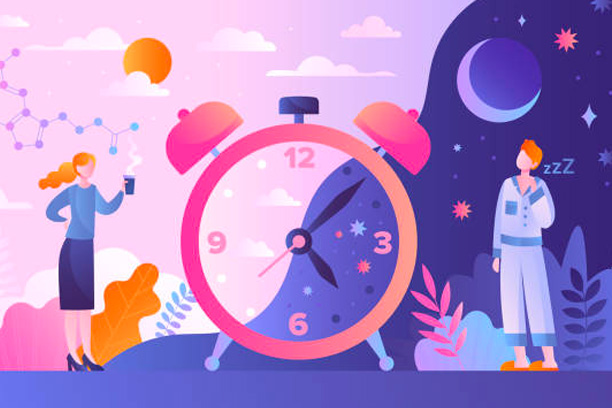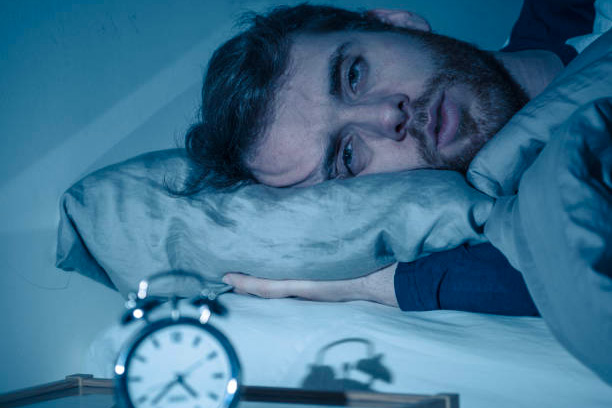What is the Circadian Rhythm? The Science of Your Body’s Internal Clock
Do you ever feel like you’re just not yourself? That’s because your body has an internal clock, known as the circadian rhythm, that controls your sleep-wake cycles. This clock is influenced by light and dark, which is why it’s important to get plenty of natural sunlight during the day and avoid bright screens at night.
How Does the Circadian Rhythm Work?

The circadian rhythm is a biological process that governs many of the body’s functions. It is driven by an internal “clock” that regulates when we sleep, eat, and perform other activities. The clock is controlled by the light-dark cycle and helps to keep our bodies in sync with the 24-hour day.
How Do Hormones Effect Circadian Rhythm?
The circadian rhythm is regulated by hormones, specifically melatonin. Melatonin is produced in the brain and helps to regulate sleep patterns. When it is dark outside, the body produces more melatonin, which makes us feel sleepy. When it is light outside, the body produces less melatonin, which makes us feel awake and alert. Caffeine can also have an effect on the circadian rhythm by interfering with the production of melatonin. This is why it is important to limit caffeine intake in the evening. It can be difficult to stick to a regular sleep schedule when you have irregular work hours or travel frequently.
How Does Jet Lag Effect Your Circadian Rhythm?

Jet lag is a common experience for anyone who travels across time zones. The symptoms of jet lag, such as fatigue and difficulty sleeping, are caused by a disruption to the body’s natural circadian rhythm.
Normally, the body’s internal clock is synchronized with the light-dark cycle of the day. However, when you travel across time zones, your internal clock becomes out of sync with your surroundings. This can lead to jet lag.
There are a few ways to help reduce the effects of jet lag. One is to gradually adjust your sleep schedule in the days leading up to your trip. Another is to expose yourself to natural light as much as possible when you arrive at your destination. Finally, it is important to give yourself time to adjust to the new time zone and not try to do too much too soon. If you experience jet lag, be patient and give your body time to readjust. With a little help from your internal clock, you’ll be back on track in no time.
How Does the Circadian Rhythm Affect Health?
Disruptions to the circadian rhythm can have a significant impact on health. Studies have linked disruptions to the body’s natural sleep-wake cycle to obesity, diabetes, heart disease, and mental health conditions such as depression and anxiety. Additionally, shift work and jet lag can also take a toll on health if they disrupt the body’s natural rhythms.
How Does Stress Effect Your Circadian Rhythm?

Stress can cause your body to release cortisol, a hormone that can disrupt your circadian rhythm. When your circadian rhythm is off, you may have trouble sleeping, which can lead to more stress and a vicious cycle.
By understanding how the circadian rhythm works, we can take steps to protect our health and well-being. Disruptions to this important process can have serious consequences, but there are a few simple things we can do to help keep our bodies in sync with the natural world.
Tips to Get Your Circadian Rhythm Back on Track
There are a few things you can do to help get your circadian rhythm in tune:
- – Avoid bright screens at night and expose yourself to natural sunlight during the day.
- – Get regular exercise and eat a healthy diet.
- – Make sure your bedroom is dark and cool for optimal sleep.
- – Practice relaxation techniques like yoga or meditation.
In Conclusion
The circadian rhythm is important for more than just sleep, though. It also regulates your body temperature, hormone levels, and metabolism. That’s why when you’re out of sync with your circadian rhythm, you might feel tired during the day or have trouble sleeping at night.
The science of the circadian rhythm is complex, but the takeaway is simple: our bodies are designed to operate on a 24-hour cycle. This internal clock helps to regulate many of our bodily functions, and disruptions to it can have serious consequences for our health. By taking steps to promote a healthy circadian rhythm, we can protect our overall health and well-being.
Sources:
“What Is the Circadian Rhythm?” Mayo Clinic, Mayo Foundation for Medical Education and Research, 15 Aug. 2019
“Circadian Rhythms.” National Sleep Foundation
“The Science of Why We’re More Productive at Certain Times of Day.” Harvard Business Review, Harvard Business School Publishing


